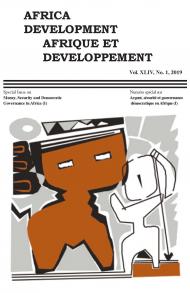Targeting Practices and Biases in Social Cash Transfers
Experiences in Rural Malawi
×
- Dans le texte
- Bouquiner
- Index
☰
Article(HTML) 19p.
Social cash transfer (SCT) programmes involve direct financial support to vulnerable households. Vulnerability, as a social condition, is often correlated with low income and food insecurity. Cash transfers augur well with neoliberal welfarism in contrast to the traditional relief approach associated with foodbased safety nets. The aim of this article is to examine targeting processes and its challenges in Malawi. Proxy indices of ultra-poverty used in the design of SCT programmes are correlated in some way to parameters such as gender, education, structure of livelihoods and type of durable assets owned by beneficiaries. The data demonstrates that beneficiaries tend to be women and persons with very little or no formal education. The authors argue that gender and education are critical parameters that are easier to determine and apply with reduced scope for bias for identifying vulnerable groups and with valuable lessons for replication of success nationwide.








